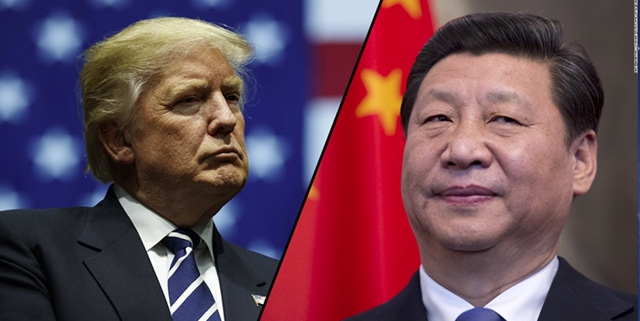The US cited national security concerns in following the recommendation of the Committee on Foreign Investment in the US, which could get new powers to increase scrutiny of deals by foreign buyers.
Casting a pall over future Chinese acquisitions in the US market, President Donald Trump blocked the proposed $1.3 billion purchase of Oregon-based Lattice Semiconductor by Canyon Bridge Capital Partners, an investment firm with close ties to Beijing.
The US administration cited national security concerns in following the recommendation of the Committee on Foreign Investment in the US (CFIUS), which could get new powers to increase scrutiny of deals by foreign buyers.


Trump’s decision comes as a second blow to Chinese-backed deals, which fell by 49% in the first half of 2017 from the same period a year earlier, to $64.2 billion, according to Thomson Reuters. The sharp slowdown followed China’s crackdown on capital outflows. Chinese companies spent a record $221 billion on overseas assets last year, mainly seeking to acquire technology and brands.
CFIUS is chaired by the secretary of the Treasury and includes representatives from 16 US departments and agencies. The Treasury’s press release cited “the potential transfer of intellectual property to the foreign acquirer; the Chinese government’s role in supporting this transaction; the importance of semiconductor supply chain integrity to the US government; and the use of Lattice’s products by the US government.”
Lattice makes field-programmable gate arrays and other programmable logic devices that could have military applications. The company says it outsources its chipmaking to other companies, and it offered to transfer key intellectual property to the US government. However, Treasury Secretary Steven Mnuchin said CFIUS’ recommendation on the deal was “consistent with the administration’s commitment to take all actions necessary to protect national security.” Mnuchin said: “CFIUS and the president assess that the transaction poses a risk to the national security of the United States that cannot be resolved through mitigation.” Following the president’s order, Lattice said the acquisition was being terminated.
Law firm Morrison & Foerster said this is only the fourth time since 1990 that a US president has blocked a deal on national security concerns—including President Obama blocking the acquisition of Aixtron’s semiconductor business by China in December 2016. All four transactions that were blocked involved Chinese acquirers.
CFIUS is also considering other China deals, including the proposed purchase of MoneyGram International by Ant Financial, an affiliate of China’s Alibaba Group. Meanwhile, US-China relations have soured on trade issues, and Trump has criticized Beijing for not doing more to solve the North Korean nuclear crisis.
International law firm Foley & Lardner says Chinese companies are now the largest source of CFIUS requests for review, having surpassed UK companies several years ago. Republicans in Congress have asked the Government Accountability Office to determine whether CFIUS reviews “have effectively kept pace with the growing scope of foreign acquisitions in strategically important sectors in the US,” while specifically singling out Chinese and Russian state-owned enterprise investments as causes of concern, says Foley & Lardner.



